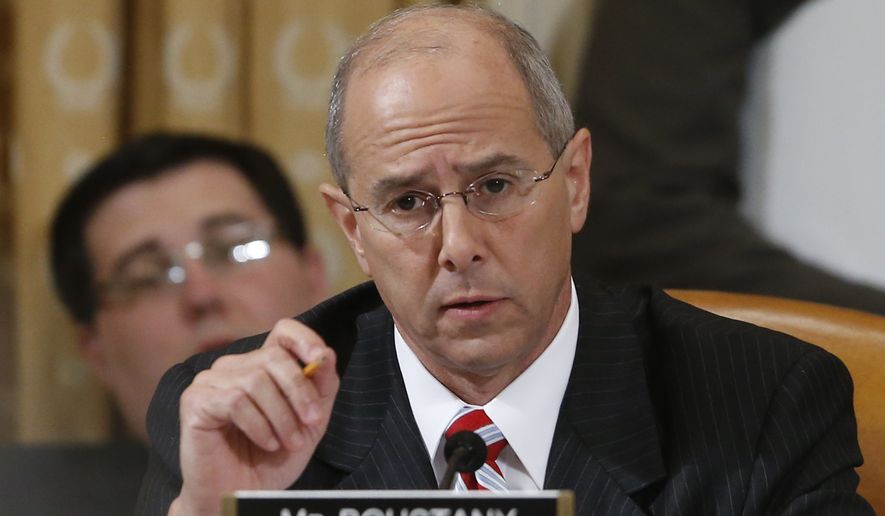House Republicans settled on the outlines of a plan Wednesday to wean the country off of Obamacare’s subsidies in anticipation of a Supreme Court ruling this month that could throw the massive health program into chaos.
Described as a “work in progress,” the plan would continue to pay full subsidies under the Affordable Care Act to all beneficiaries regardless of where they live, but starting next year states could begin to opt out of Obamacare, taking the money as a block grant to help their residents obtain insurance however local officials see fit.
The block grants and subsidies, including those for states that stay in Obamacare, would expire in 2017, forcing the next president and Congress to replace the law entirely.
“I think it’s a good plan. It’s a good start,” Rep. Charles W. Boustany Jr., Louisiana Republican, said after huddling with the GOP caucus behind closed doors.
Republicans were racing to have a plan ready for a Supreme Court ruling that could come as early as Thursday.
The justices are considering a part of the law that says the subsidies can be paid to residents in states that established their own exchanges. The administration argues that was intended to cover everyone, while opponents say it was meant to exclude the 34 states that refused to set up exchanges and instead rely on the federal HealthCare.gov program.
More than 6 million Americans stand to lose subsidies should the court rule that the administration has been breaking the law.
Senate Republicans huddled to discuss their own plans Wednesday, including ones to lock in the subsidies through 2017, but offered fewer details.
“We don’t know what the Supreme Court is going to do, but we want to be ready,” Sen. John Cornyn, Texas Republican, said.
Thirty-one Senate Republicans have co-sponsored a bill by Sen. Ron Johnson, Wisconsin Republican, that would lock in the subsidies through August 2017.
Others say Congress should just let states opt out of Obamacare if the subsidies go away, or extend temporary aid outside of the health law’s framework.
“Conceptually, we’re on the same page,” Sen. John Hoeven, North Dakota Republican, said. “We just have to work through some of the details.”
President Obama and his Democratic allies say the law is fine as written, and that residents of every state should enjoy the subsidies. They say that if the justices rule against the administration, Congress should fix it by passing a one-sentence change making clear the subsidies should go to everyone.
The GOP-led Congress won’t allow that, but they also don’t want to suffer political blowback for cheering on the lawsuit, known as King v. Burwell.
Still, a ruling would give them a chance to attack broader parts of the law.
The House proposal, which has not been finalized, would repeal the Affordable Care Act’s insurance mandates on individuals and employers, a measure that is sure to raise the ire of Obamacare supporters who say the mandates are necessary to balance risk pools and keep premiums in check.
Members were broadly supportive Wednesday of the framework proposed by Ways and Means Chairman Paul Ryan, Wisconsin Republican, and other chairmen, although the fractious House GOP caucus has struggled to agree on many issues in the past.
Republicans would use a budget process known as “reconciliation” to pass their plan because it can pass the Senate on a majority vote. Mr. Obama could still veto the plan, however.
“Ultimately, the president would have to decide whether he would sign it,” said Rep. John Fleming, Louisiana Republican. “So we may end up with a standoff.”
Some lawmakers are wary of approving Obamacare subsidies even for the rest of 2015 and 2016, fearing it sends the wrong message to voters after the GOP has spent years trying to repeal the entire law.
“We need something that works for everybody,” Rep. Austin Scott, Georgia Republican, said, although he did not say if he would oppose extending the subsidies no matter what.
• Tom Howell Jr. can be reached at thowell@washingtontimes.com.




Please read our comment policy before commenting.